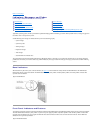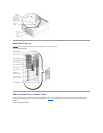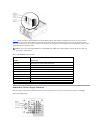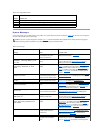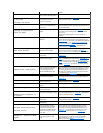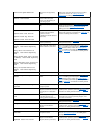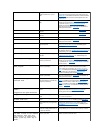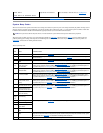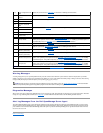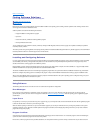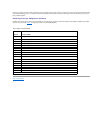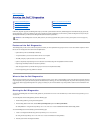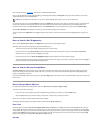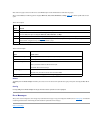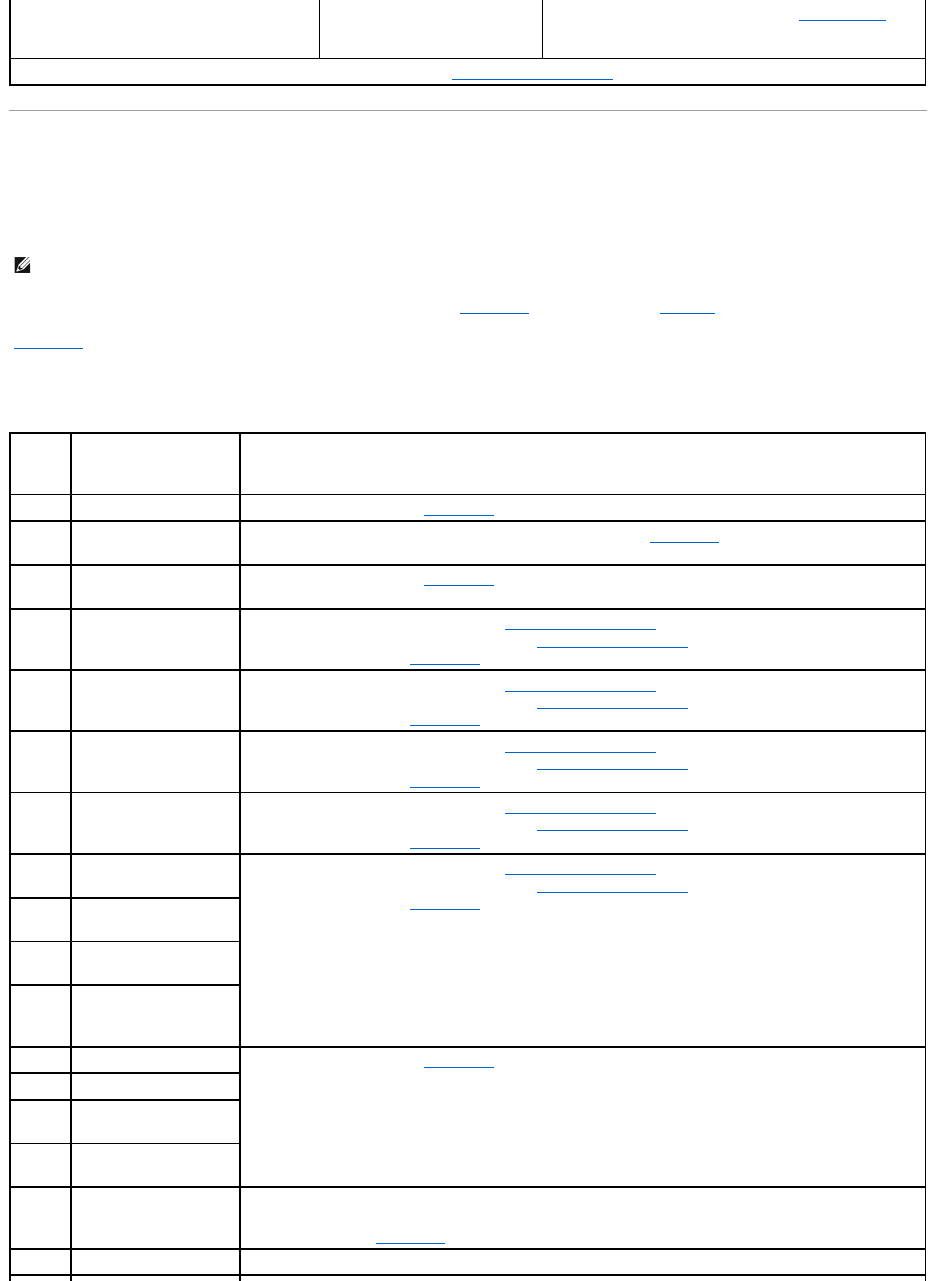
System Beep Codes
When an error that cannot be reported on the monitor occurs during a boot routine, the system may emit a series of beeps that identify the problem. The beep code is a
pattern of sounds; for example, one beep followed by a second beep and then a burst of three beeps (code 1-1-3) means that the system was unable to read the data
in NVRAM. This information is valuable to the Dell technical support representative if you need to call for technical assistance.
When a beep code is emitted, record it on a copy of the Diagnostics Checklist in "Getting Help," and then look it up in Table2-4. If you are unable to resolve the
problem by looking up the meaning of the beep code, use the Dell Diagnostics to identify a more serious cause. If you are still unable to resolve the problem, see
"Getting Help," for instructions on obtaining technical assistance.
Table 2-4.SystemBeepCodes
Write fault
Write fault on selected drive
Faulty diskette or hard-disk drive
Replace the diskette or hard-disk drive. See "Installing Drives."
NOTE: For the full name of an abbreviation or acronym used in this table, see "Abbreviations and Acronyms."
NOTE: If the system boots without a keyboard, mouse, or monitor attached, the system will not issue beep codes related to these peripherals.
Code
Cause
Corrective Action
1-1-3
CMOS write/read failure
Replace the system board. See "Getting Help," for instructions on obtaining technical assistance.
1-1-4
BIOS checksum failure
This fatal error usually requires that you replace the BIOS firmware. See "Getting Help," for instructions on obtaining
technical assistance.
1-2-1
Programmable interval-timer
failure
Replace the system board. See "Getting Help," for instructions on obtaining technical assistance.
1-2-2
1-2-3
DMA initialization failure
DMA page register
write/read failure
Remove and reseat the memory modules. See "Installing Memory Modules" in "Installing System Board Options." If the
problem persists, replace the memory modules. See "Installing Memory Modules" in "Installing System Board Options." If
the problem still persists, see "Getting Help," for instructions on obtaining technical assistance.
1-3-1
Main-memory refresh
verification failure
Remove and reseat the memory modules. See "Installing Memory Modules" in "Installing System Board Options." If the
problem persists, replace the memory modules. See "Installing Memory Modules" in "Installing System Board Options." If
the problem still persists, see "Getting Help," for instructions on obtaining technical assistance.
1-3-2
No memory installed
Remove and reseat the memory modules. See "Installing Memory Modules" in "Installing System Board Options." If the
problem persists, replace the memory modules. See "Installing Memory Modules" in "Installing System Board Options." If
the problem still persists, see "Getting Help," for instructions on obtaining technical assistance.
1-3-3
Chip or data line failure in
the first 64 KB of main
memory
Remove and reseat the memory modules. See "Installing Memory Modules" in "Installing System Board Options." If the
problem persists, replace the memory modules. See "Installing Memory Modules" in "Installing System Board Options." If
the problem still persists, see "Getting Help," for instructions on obtaining technical assistance.
1-3-4
Odd/even logic failure in the
first 64 KB of main memory
Remove and reseat the memory modules. See "Installing Memory Modules" in "Installing System Board Options." If the
problem persists, replace the memory modules. See "Installing Memory Modules" in "Installing System Board Options." If
the problem still persists, see "Getting Help," for instructions on obtaining technical assistance.
1-4-
Address line failure in the
first 64 KB of main memory
1-4-2
Parity failure in the first 64
KB of main memory
2-1-1
through
2-4-4
Bit failure in the first 64 KB
of main memory
3-1-1
Slave DMA-register failure
Replace the system board. See "Getting Help," for instructions on obtaining technical assistance.
3-1-2
Master DMA-register failure
3-1-3
Master interrupt-mask
register failure
3-1-4
Slave interrupt-mask register
failure
3-2-4
Keyboard-controller test
failure
Check the keyboard cable and connector for proper connection. If the problem persists, run the keyboard test in the Dell
Diagnostics to determine whether the keyboard or keyboard controller is faulty. If the keyboard controller is faulty, replace
the system board. See "Getting Help," for instructions on obtaining technical assistance.
3-3-1
CMOS failure
Run the system board test in the Dell Diagnostics to isolate the problem.




